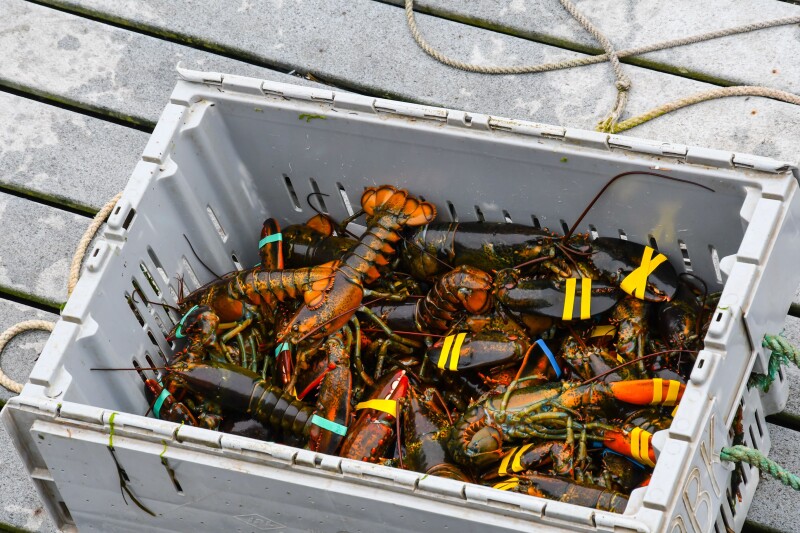Canada’s commercial lobstermen continue to express frustrations following a legal suit and further illegal fishing in southern New Brunswick. With the lack of federal fisheries officers patrolling areas, lobster poaching will not slow in the near future. Commercial fishermen fear that without more officers enforcing the Fisheries Act, which manages Canadian fisheries' resources and regulates them, come the November lobster season, there will be nothing left to catch.
Local lobster harvesters are preparing to take matters into their own hands, patrolling the waters and removing illegal gear, a move that could potentially lead to confrontations with poachers, Amanda Johnson, executive director of the Fundy North Fishermen’s Association, told Telegraph Journal. This organization represents 150 lobster fishermen stretching from St. Stephen to Alma.
At a recent protest in Saint Andrews, Johnson expressed concern that these actions might escalate into significant violence on the water, highlighting the growing tension between local fishermen and illegal operators.
The situation reached a turning point in March when Federal Fisheries Minister Diane Lebouthillier canceled the elver fishery for the year in response to excessive poaching. Her decision was influenced, in part, by the violence reported between harvesters and federal fishery officers. In April, 95 arrests, 21 vehicles, 233 nets, and more than 73 kilograms (about 160 pounds) of elvers had been seized.
Today, many federal fishery officers are refusing to patrol certain areas, citing harassment and threats, including assaults involving shotguns, knives, and bear spray, according to their union. The Public Service Alliance of Canada (PSAC) is the largest union in the Canadian federal public sector, and it includes the Department of Fisheries and Oceans (DFO).
Many locals have tried to contact the DFO regarding illegal instances they have encountered throughout the elver poaching and now the lobster poaching. They have been told that the groups are on strike, so fishing is not being regulated to the extent it should be. The safety of the union individuals has also been at the forefront. A spokesperson shared with CBC Canada, “To maintain operational integrity, we do not disclose the number of active officers, what specific enforcement activities they are undertaking, nor where those activities are taking place.”
In the meantime, poachers from Maine and New Brunswick are targeting Lobster Fishing Area 36, which runs along New Brunswick’s Bay of Fundy coast from Alma to the American border, ahead of its November season. Johnson reports that there are currently no enforcement officers patrolling this district.
Fisheries and Oceans Canada (DFO) maintains that enforcement is ongoing “by sea, land, and air” in the region despite the current job actions affecting their personnel.







